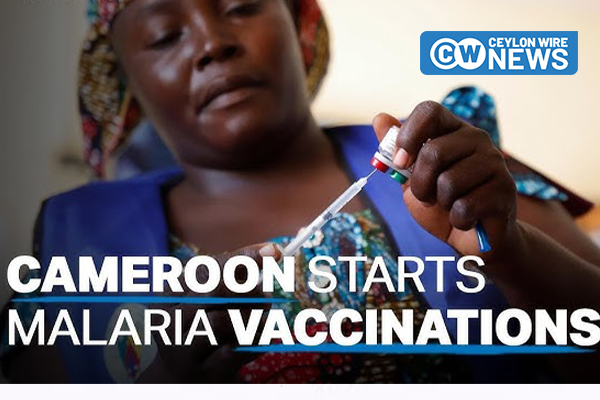Cameroon has initiated the world’s first routine vaccine program against malaria, marking a significant step in the global fight against the deadly mosquito-borne disease. The inaugural dose of the RTS,S vaccine was administered to a baby girl named Daniella at a health facility near Yaoundé on Monday.
Annually, malaria claims the lives of 600,000 people in Africa, with children under five accounting for at least 80% of these deaths, according to the World Health Organization (WHO). The RTS,S vaccine will be offered free of charge to all infants up to six months old in Cameroon, with a total of four doses administered alongside routine childhood vaccines for ease of access.
Successful pilot campaigns in Kenya, Ghana, and Malawi have shown a 13% reduction in malaria deaths among eligible children, as reported by Unicef. While the RTS,S vaccine is effective in approximately 36% of cases, making it a valuable tool in conjunction with mosquito nets and malaria tablets, some experts emphasize that its efficacy rate is not a “silver bullet.”
The development of the RTS,S vaccine took 30 years of research by the British drug-maker GSK. Despite its lower efficacy rate, the vaccine’s approval by the WHO is hailed as a historic moment in the global fight against malaria. Cameroon joins the list of countries implementing the vaccine, with 20 others planning to roll out the program this year, including Burkina Faso, Liberia, Niger, and Sierra Leone.
Cameroonian doctor Shalom Ndoula, a key figure in the vaccine rollout, expressed optimism, stating, “We have the capacity to considerably reduce the number of cases and deaths from malaria and accelerate the elimination of the disease.”
While concerns about vaccine hesitancy exist, officials stress the safety and efficacy of the doses. The launch of the malaria vaccine program in Cameroon is a crucial step in combating a disease that accounted for 95% of global malaria cases and 96% of related deaths in Africa in 2021. The vaccine’s anticipated rollout in other countries, coupled with ongoing research, aims to expand the availability of doses and enhance the fight against malaria.









